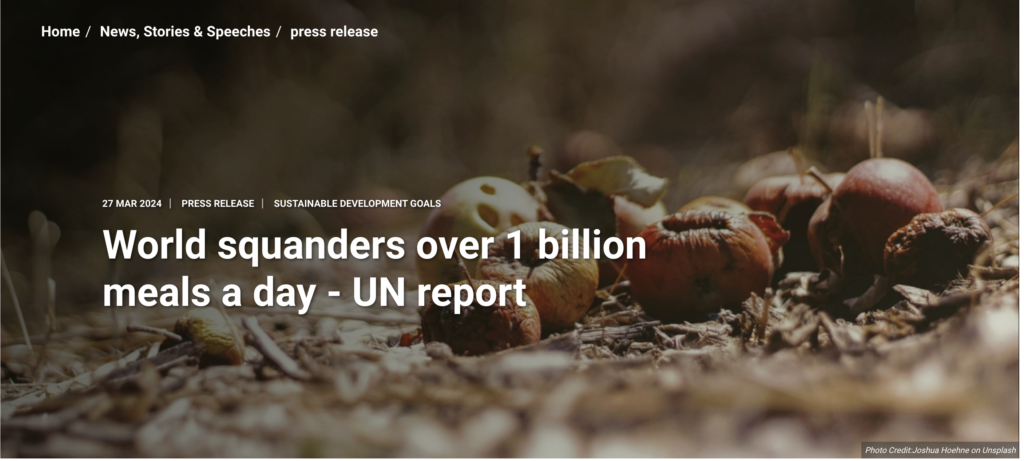A new United Nations report lays bare a truth as sobering as it is shocking: the world is mired in a colossal food waste crisis. This isn’t a matter of forgotten childhood lessons about finishing our meals; it’s a global problem with devastating consequences.

The report throws a staggering statistic at us: a mind-boggling one billion meals are wasted every single day. This rampant wastefulness unfolds even as food insecurity rises and food prices remain stubbornly high. The grim irony is undeniable – we waste mountains of food while millions go hungry.
The cost of this collective carelessness? A staggering one trillion dollars annually.
But the problem isn’t simply about misplaced wealth. The report delves deeper, revealing that on average, each person wasted a significant 132 kilograms (291 pounds) of food in 2022. This staggering figure outpaces the number facing food insecurity, a number that reached a disturbing 783 million people in 2022. In fact, a third of the world’s population faces some level of food insecurity, highlighting the stark contrast between our wastefulness and their struggle.
Interestingly, the report debunks a common myth: food waste isn’t solely a problem of wealthy nations. While some food waste is inevitable during harvesting and transportation, the bulk of the problem (60%) happens at the household level.
Those forgotten leftovers languishing in the fridge, wilted vegetables ignored in the crisper drawer, and uneaten take-out meals all contribute significantly. Food service establishments like restaurants and cafes are also culprits, generating 28% of food waste. The remaining 12% comes from retailers, where cosmetically imperfect produce often ends up discarded.
The environmental impact of food waste is equally concerning. When food decomposes in landfills, it releases methane, a potent greenhouse gas that contributes to global warming. The report estimates that food waste is responsible for a shocking 10% of global greenhouse gas emissions, a figure five times higher than the entire aviation sector!
The UN report serves as a stark wake-up call. Food waste is a multifaceted problem with global consequences, impacting food security, inflation, and climate change. Changing course is essential.
To move towards a world where food is valued, not wasted, we need a multi-pronged approach. Increased awareness about the true cost of food waste is crucial, educating both consumers and businesses. Implementing smarter food storage techniques at home and in food service establishments can significantly reduce waste. Normalizing “ugly” fruits and vegetables by retailers and consumers can lessen the burden on landfills. Finally, utilizing technology to optimize food production, distribution, and consumption can minimize waste throughout the supply chain.
By adopting these measures, we can strive for a cleaner plate and a more sustainable future for all. Let’s end the era of waste and usher in an era of responsibility.

